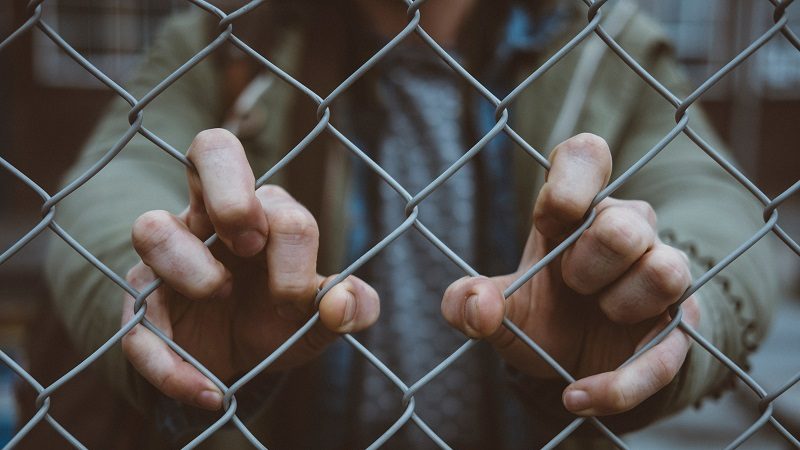In the First World War, Wilfred Owen once wrote, “What passing bells for these who die as cattle?” His writing on how humans were reduced to scraps of flesh were answered only after the Second World War, when Europe decided to establish universal, inalienable rights for mankind.
A generation later, Europe is struggling to address the fact that the once-great Mediterranean Sea has become a graveyard.
Army marching bands played in front of Castille, the seat of Malta’s Prime Minister Joseph Muscat, as he emerged alongside Czech PM Andrej Babiš. There was no silence offered to the hundreds of lost souls who have perished this summer. Instead, spirited music was played in honour of the two, who had been discussing migration.
Babiš’ hardline stance puts him in same league as Italy’s firebrand Deputy Prime Minister Matteo Salvini and Hungary’s Viktor Orbán, who have recently praised each other’s zero tolerance migration agenda, setting them at odds with French President Emmanuel Macron’s pro-migration centrism.
As usual, summer put migration back on the agenda making the Mediterranean synonymous with the migration crisis. But on the continent, debate is stifled by flawed legislation and fear mongering.
When it comes to saving human lives, the response should be simple. But issues of status, housing and integration have created complications that spill over into humanitarian efforts. While EU leaders try and fail at negotiations to resolve the migration problem, more and more lives are swallowed up at sea.
The journey to Libya is already perilous enough. Those lucky enough to have endured the journey face darker obstacles in Libya, before trying their luck at sea. Hundreds have drowned this summer alone. Mortality rates play at just over 50%.
Read more: UNHCR sounds alarm as Mediterranean Sea deaths pass 1,500 mark
EU citizens have campaigned and raised funds to kickstart operations aimed at intercepting migrants fleeing from neighbouring North Africa. NGOs, like Proactiva Open Arms, Mission Lifeline, Sea-Watch, Sea-Eye and SOS Mediterranée, are all dedicated to maritime search and rescue.
International law requires States to coordinate search and rescue of lives in danger. The rise of Salvini, backed by the hard right, has rendered coordination impossible.
Amnesty International recently released a report slamming Italy and Malta for allowing migrants to perish under their watch. The UNCHR, the United Nation Council of Human Rights, has similarly accused Italy of breaching international law.
Of the five NGOs conducting voluntary search and rescue, only two are operational.
In Malta, NGOs working are facing a Kafkaesque nightmare in the Maltese courts while their boats are detained. To date, Moonbird, the plane operated by Sea-Watch, has not been given a legal reason for its detainment.
MV Lifeline, Seafuchs and SeaWatch remain detained in the Grand Harbour for alleged irregularities with their registration in the Netherlands. Only the MV Lifeline is actually facing proceedings, with Captain Claus-Peter Reisch appearing in criminal court.
This new policy of blocking migrant ships echoes the Australian model. Australia tested some of the harshest border controls: zero tolerance. Boats were intercepted and the passengers sent straight to detention camps in Papua New Guinea and Nauru, another island in the Pacific.
Back in April 2015, the then Australian PM Tony Abbott had said that the only way to curb migrant deaths at sea was “to stop the boats”. Malta’s Prime Minister seems set towards a similar approach.
Muscat’s strength in polls means that accepting migrants would not slash his popularity, especially after his statement on the need for foreign workers in Malta to supply demand. Yet, he continues to play to populist sentiment, prejudice and fear.
The Australian model has it consequences. Asylum seekers face horrendous conditions, including health hazards, violence and sexual assault. Manus Island and the tiny island of Nauru have seen migrants sew their lips together and self-immolate in protest against the discriminatory and cruel treatment they suffered.
The model is very much about keeping migrants out of sight. The right in Europe has praised this, including Brexiteer Nigel Farage. Farage and Muscat have much in common, since they both campaigned against the EU. It is under Muscat’s watch that migrant rescue ships have been detained.
The similarities to Australia ring true, but the differences are also too big to ignore.
Indonesia and Malaysia, stepping stones into Australia, are apparently not as dangerous for refugees as Libya. The Geneva Convention prohibits refoulement, or returning migrants back to the country where their lives may be endangered.
Despite legal complications, any future model of immigration must have human dignity at its core. Prime Minister Muscat recently claimed that he cannot let migrants drown. But it is hypocritical for him to say that when he is the one keeping rescue vessels from saving lives.
If Muscat is exploring the hard right’s policy of choice, he may do well to note that he faces an obstacle: the European Charter of Human Rights.













